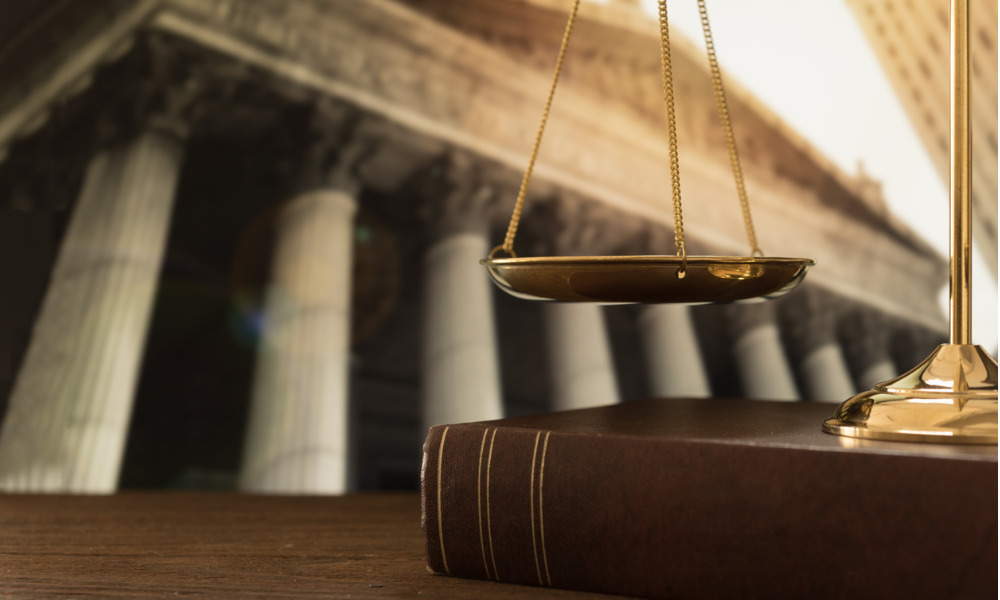Quebec bar president Paul-Mattieu Grondin says most lawyers have likely heard rumours and innuendo about cases of sexual harassment within the legal profession.

Quebec bar president Paul-Matthieu Grondin says most lawyers have likely heard rumours and innuendo about cases of sexual harassment within the legal profession.
But he hopes that a survey his organization launched yesterday to Quebec’s 27,000 lawyers and articling students will provide concrete evidence about the nature and scope of the problem.
“We want to first establish if, when and where incidents occur and how prevalent they are,” says Grondin. “Once we know what we’re dealing with, we can consider solutions.”
In an email sent yesterday to all of its members and articling students, the Barreau du Québec invites them to log on to a secure website and fill out a lengthy questionnaire on the issue of sexual harassment.
Designed and developed by Isabelle Auclair, an anthropologist at University Laval in Quebec City, the survey asks what Grondin calls “a lot of very precise and tough questions” on the kinds and frequency of sexual harassment that lawyers may have witnessed or been victims of in the workplace and the times and places where those incidents occurred.
“We want information, not names,” says Grondin. “We really want this to be confidential.”
In an email this morning to Legal Feeds, Auclair says the bar’s survey is similar to one developed and used by universities for dealing with sexual violence on campus.
That survey involves 13 sections that deal with everything from the description of incidents and the personal, professional and social consequences for victims to the actions they took to report and/or deal with incidents and the results of those actions.
According to Grondin, there is no deadline for lawyers to respond to the questionnaire. However, he says, he expects to receive a final report on the survey findings by next spring.
“At that point, we can start to consider solutions to problems that have been evaluated and identified,” says Grondin.
As provincial regulator of the legal profession, a bailiwick that includes the conduct of lawyers and their inter-professional relations, Grondin says he has many tools at his disposal to deal with the problem.
Those tools include investigative and disciplinary measures on lawyers, control over the École du Barreau and open lines of communication with lawmakers at both the federal and provincial levels and the deans of Quebec’s five law faculties.
“We’re all on the same page when it comes to the issue of sexual harassment,” says Grondin.
The Barreau du Québec, he adds, has already taken measures to deal with the issue in recent years.
Its investigators, for example, have received specific training on how to investigate cases involving sexual assaults and misconduct.
The Barreau was also an active supporter of Bill 151, a law passed in the spring to help prevent and fight sexual violence in higher education, and successfully lobbied for the École du Barreau to be included in that legislation.
In early 2017, in the aftermath of the Jian Ghomeshi trial, the Barreau created a working group that considered the treatment of sexual assault complaints by police and the justice system.
That work led to seven best-practice recommendations, including the implementation of a collaborative “Philadelphia model” for handling complaints and specific training for the cross-examination of vulnerable people, including victims of sexual assault.
For Marianne Plamondon, a labour lawyer and partner in the Montreal office of Langlois Lawyers, the Barreau’s new survey is a welcome development for Quebec’s legal profession.
“The issue of sexual harassment is not very well documented here,” says Plamondon. “There are no statistics on it.”
Despite the absence of data, Plamondon says, the legal profession is certainly not immune to the problems that have shaken the entertainment and media industries since the advent of the #MeToo movement.
“It’s not easy for a young lawyer to make a complaint when something happens,” says Plamondon. “They’re afraid for their career.”
In addition to the regulator’s initiatives and an update in June to s. 123.6 of the Quebec Labour Standards Act, making it mandatory for businesses to have a reporting policy in place to deal with complaints of sexual harassment, Plamondon says law firms can help by building positive workplaces.
“Young people are looking for constructive environments that value respect and inclusiveness and have no bullying,” says Plamondon. “True team spirit helps to avoid harassment problems and leads to success in recruiting and retaining top talent.”










